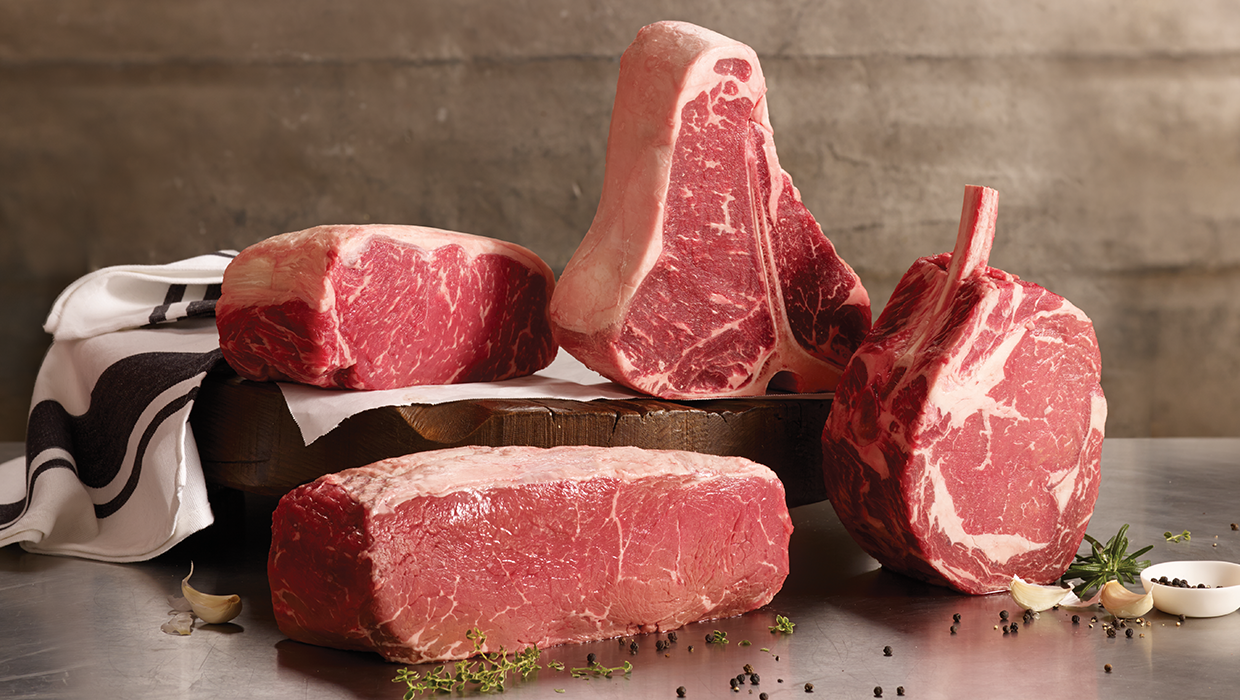In an age where the conscious consumer looks for ways to economize while maintaining quality in their daily lives, buying beef in bulk emerges as a savvy approach to grocery shopping. This method not only aligns with the goals of budget-conscious households but also caters to those passionate about embracing sustainable living practices. This article delves into the myriad benefits of purchasing beef in bulk, blending insights from various sources to present a comprehensive guide for the discerning shopper.

Economic Advantages
One of the most compelling reasons to buy beef in bulk is the significant cost savings. When you purchase meat in larger quantities, you're often buying directly from the source, such as farmers or wholesalers, which can lead to lower prices due to reduced packaging and marketing costs. This direct relationship between producer and consumer eliminates several middlemen, translating to better prices for the consumer. Additionally, buying in bulk allows consumers to lock in prices, protecting them from the fluctuations of the market that can occur with seasonal changes or economic shifts.
Quality and Health Benefits
Bulk purchasing also offers a pathway to higher quality meat. Consumers gain the opportunity to select grass-fed, organic, or locally sourced beef, which is often available through bulk purchasing programs. This type of beef is not only superior in taste but also boasts higher levels of beneficial nutrients such as omega-3 fatty acids, antioxidants, and vitamins. Furthermore, by having a direct line to the source of their beef, consumers can inquire about the farming practices, ensuring the animals were raised ethically and without unnecessary antibiotics or hormones.
Environmental and Ethical Considerations
The environmental and ethical implications of buying beef in bulk are profound. Opting for bulk purchases from local farms supports sustainable farming practices that are more likely to prioritize animal welfare and use eco-friendly methods. This reduces the carbon footprint associated with long-distance transportation of goods. Moreover, bulk purchasing minimizes packaging waste, contributing to a reduction in the consumer’s environmental impact.
Convenience and Time Savings
The convenience of having a large quantity of beef on hand cannot be understated. It simplifies meal planning and reduces the frequency of shopping trips, saving time and fuel. For those who manage busy schedules, this aspect of bulk buying can be a game-changer, offering peace of mind knowing that a key ingredient for numerous meals is readily available in their freezer. Additionally, this convenience extends to the ability to budget more effectively, as the cost of a significant portion of meals is known upfront.
Customization and Variety
When buying beef in bulk, consumers often have the option to customize their orders. This flexibility allows for a tailored approach to meet dietary preferences and household needs, whether that's a mix of ground beef, steaks, roasts, or other cuts. Furthermore, this method introduces variety into the diet, encouraging culinary exploration and a broader spectrum of nutrients.

Strategic Storage and Usage
The prospect of purchasing and storing large quantities of beef may seem daunting at first. However, with proper planning and some basic knowledge of meat storage, it's quite manageable and immensely rewarding. Investing in a good quality freezer and learning the best practices for freezing and thawing meat can ensure that the beef maintains its quality over time. Proper storage not only preserves the taste and nutritional value but also prevents waste, making bulk buying an efficient and responsible choice.
Building Relationships with Producers
Buying in bulk often involves direct interactions with farmers or suppliers, fostering a connection that goes beyond the transactional. This relationship builds a deeper understanding and appreciation of the food supply chain, and consumers often gain insights into the best cuts of meat and tips for preparation and storage. Furthermore, these relationships can lead to opportunities for learning about special deals, new products, or even visits to the farm, enhancing the overall culinary experience.
Conclusion
The benefits of buying beef in bulk are multifaceted, extending beyond mere cost savings to touch on aspects of quality, health, environmental sustainability, convenience, and culinary exploration. By adopting this approach, consumers play an active role in their food supply chain, making informed choices that support their values and lifestyles. As we strive towards more sustainable and responsible consumption patterns, buying beef in bulk stands out as a practical, rewarding strategy that aligns with the aspirations of the modern, conscious consumer.
Whether motivated by economic, environmental, or health considerations, the shift towards bulk purchases of beef represents a smart, forward-thinking approach to grocery shopping. It encourages a closer connection to our food sources, promotes dietary diversity, and fosters a more sustainable interaction with our planet. In embracing the bulk buying model, consumers not only benefit themselves but also contribute to a larger movement towards ethical consumption and sustainable living.
